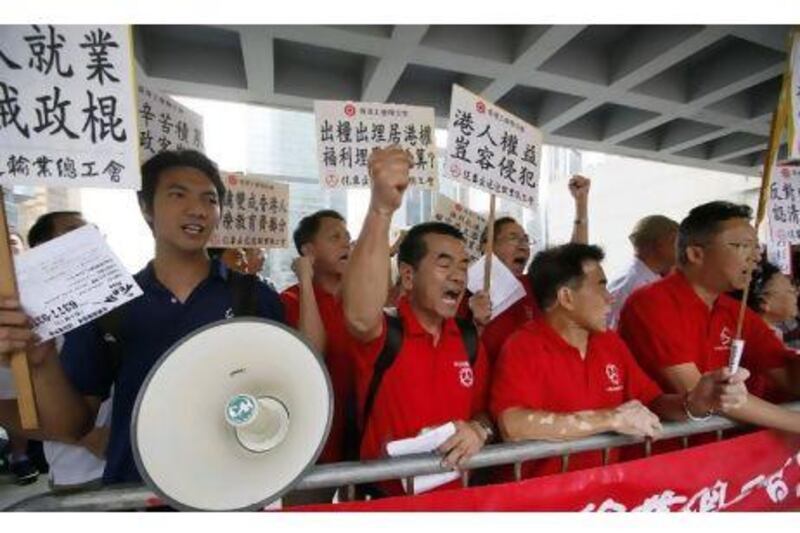BEIJING // A Filipina maid in Hong Kong won a landmark court case yesterday that could open the door for foreign domestic workers to secure permanent residency.
A Hong Kong judge decided that an immigration rule excluding foreign maids from applying for permanent residency after living in the territory for seven years breached basic law, the local mini-constitution.
Authorities have indicated they would appeal. But if the decision was to be upheld, there are 117,000 maids employed in Hong Kong for at least seven years who could be affected.
The special administrative region of China has about 292,000 foreign maids in total, most from the Philippines or Indonesia, out of a population of 7.1 million.
Evangeline Vallejos, 59, a maid who has lived in Hong Kong since 1986 and who was rejected for permanent residency in 2008, brought the case with the support of rights campaigners.
Yesterday's ruling was "a step forward in recognising the rights of migrants", the Philippine vice president, Jejomar Binay, told media.
"Overseas Filipino workers have contributed to the economies of their host countries and the decision recognises their contributions."
Pro-government politicians in Hong Kong have warned that allowing maids permanent residency could lead to their bringing over as many as half a million husbands and children, adding billions of dollars to the cost of education, health and other public services.
Rights campaigners have argued that excluding maids, but not other foreign workers, from applying for permanent residency, was discriminatory.
Under the current system, a maid who leaves her job has to find another position or leave Hong Kong within two weeks, and this makes them vulnerable to abuse as they are reluctant to quit even if conditions are difficult, said Chris Chan, an assistant professor at the City University of Hong Kong who specialises in labour issues.
Maids with permanent residency may be more willing to leave abusive employers as they would not risk being forced to return to their home country.
"The problem for them is that they cannot change jobs," he said.
"Sometimes they have to be very tolerant of abuse cases."
He added that physical and mental abuse from employers was "a major problem".
Reports have indicated that if the government loses its appeal, it could get around the ruling by limiting the years of service of maids, or that the Beijing government could intervene to reinterpret basic law, although this could threaten Hong Kong's judicial independence.
A ruling on whether Ms Vallejos herself would be granted permanent residency is due next month.






